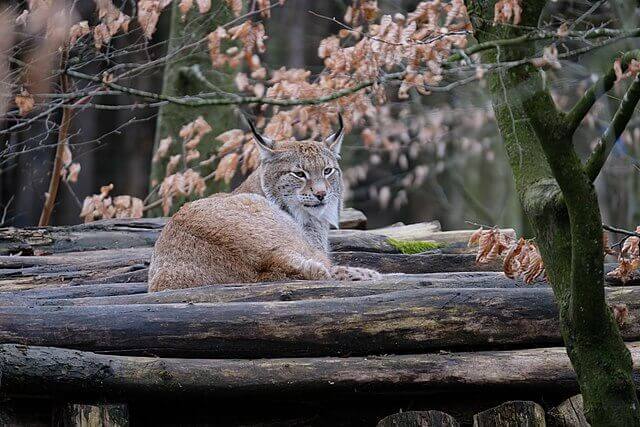
With only 150 adults remaining in the population, the lynx in France faces extinction.
DNA tests show that their genetic diversity is so low that they could leave the country in 30 years.
Conservationists warn that Europe’s big cat population is doomed to collapse unless immediate protection measures are taken.
There are 120 to 150 adult lynxes in France, according to researchers. The cats’ genetic diversity is so low that they will go extinct locally within 30 years unless urgent action is taken, according to tests on the animals.
Historically, lynxes roamed the vast expanse of Eurasia. However, habitat loss, inbreeding, poaching, and traffic collisions have put the elusive animals under severe threat in many nations.
Lynxes completely disappeared from France in the 18th century. Some Eurasian lynxes re-established themselves in the Jura mountains in France following a project to reintroduce them in Switzerland in the 1970s. However, the population was insufficient to maintain stability.
Between 2008 and 2020, scientists at the wildlife protection center in eastern France called the Centre Athenas were able to collect 88 DNA samples from injured, dead, or orphaned lynxes and analyze 78 of them to get a picture of the population’s genetic health. The team did not collect samples from healthy wild lynxes in order to avoid distressing the animals.
The tests revealed an alarming lack of genetic diversity. Although researchers believe there are more than 120 adult lynxes in France, the population has a level of diversity equivalent to only 38 animals. “This population has lost a lot of genetic diversity since it was reintroduced in Switzerland,” said Nathen Huvier, an author on the study. “If no new genetic material is reintroduced this population will go extinct, once again, in less than 30 years.”
The researchers report in the journal Frontiers in Conservation Science that the DNA of the lynxes reveals a devastating level of inbreeding, with two mating cats now very likely to be related.
“A lack of genetic diversity can reduce the fitness of the individuals, generate diseases and reduce the ability of the individuals to adapt to environmental changes,” Huvier said. A population that presented those characteristics “was not able to evolve” so was vulnerable to collapse, he added.
According to Huvier, the lynx was a crucial species in the local ecosystem because it was an apex predator. Adding more lynxes from healthier populations, like those in Switzerland or Germany, was one strategy for increasing the population’s genetic diversity. However, Huvier stated that such introduction projects were challenging politically.
The exchange of orphaned lynx cubs that are being cared for at wildlife rescue centres in various regions and the replacement of poached lynxes is one alternative strategy. In addition, the researchers hope that road signs informing motorists of the presence of lynxes will reduce the number of people killed by vehicles and that poaching laws will be strictly enforced.
“We want this work to support action for lynx conservation,” said Huvier. “Reintroduction, replacement of poached lynxes, and exchange of orphan lynxes between care centres, are the best short-term solutions for this population to remain alive, and it will give it a chance to develop and connect with other populations in Europe.”
——————————————————————————
At Natural World Fund, we are passionate about stopping the decline in our wildlife.
The declines in our wildlife is shocking and frightening. Without much more support, many of the animals we know and love will continue in their declines towards extinction.
When you help to restore a patch of degraded land through rewilding to forests, meadows, or wetlands, you have a massive impact on the biodiversity at a local level. You give animals a home and food that they otherwise would not have had, and it has a positive snowball effect for the food chain.
We are convinced that this is much better for the UK than growing lots of fast-growing coniferous trees, solely to remove carbon, that don’t actually help our animals to thrive.
This is why we stand for restoring nature in the UK through responsible rewilding. For us, it is the right thing to do. Let’s do what’s right for nature!
Support our work today at https://naturalworldfund.com/ and join in the solution!

